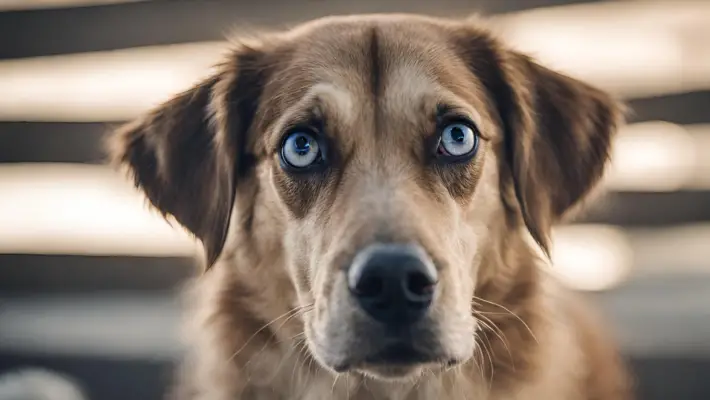Many pet owners are unaware that dogs can become intoxicated by ingesting marijuana. As cannabis products become more mainstream, accidental marijuana toxicity in dogs is on the rise. While scary, marijuana intoxication is rarely fatal for dogs. It can take 6-12 hours for your dog to fully sober up from marijuana intoxication, but most dogs recover within a day. This blog provides pet owners with an introductory guide on recognizing, managing and preventing marijuana intoxication in dogs.
Signs Your Dog is High on Marijuana
Here are some common signs that may indicate a dog is intoxicated by marijuana:
- Lethargy or lack of coordination
- Wobbliness, stumbling or seeming dizzy
- Dilated pupils
- Low body temperature or hypothermia
- Vocalizing or crying
- Restlessness, anxiety, or agitation
- Trembling, muscle twitching, or seizures (less common)
- Excessive salivation or drooling
- Loss of appetite
- Bloodshot eyes
- Walking drunk
- Staring off into space
- Hypersensitivity to touch, light, or sound

The effects of marijuana toxicity depend on the dose ingested and the individual dog. Small dogs tend to develop more severe signs than large dogs when exposed to the same dose. Signs can develop within 30 minutes up to several hours after ingestion.
When to See the Veterinarian
Despite Checking for Signs you should know when to see a vet, here’s some signs that indicate a high alert and you should take him for a checkup ASAP.
- Prolonged vomiting, diarrhea
- Seizures or loss of consciousness
- Extreme lethargy or agitation
- Fast heart rate or arrhythmia
- Inability to swallow water
- Body temperature under 99°F or over 104°F
With aggressive treatment, even severe marijuana toxicity is rarely fatal. However, intensive veterinary care may be needed to manage complications.
Managing Marijuana Intoxication at Home
If your dog accidentally ingests marijuana, you may be able to help him sober up from the intoxication safely at home. This guide provides tips for recognizing marijuana intoxication in dogs and managing the unstoning process at home.
Keep Your Dog Hydrated
- Offer fresh water, broth, electrolytes to prevent dehydration
Monitor Body Temperature
- Check temperature every 2 hours
- Use thermometer and aim for 100-102°F
- If hypothermic, use blankets and heating pad
Provide a Calm Environment
- Create a quiet space with minimal stimulation
- Consider calming music, pheromones, supplements
Manage Incontinence
- Use absorbent dog diapers or pee pads
- Limit water if accidents persist
Monitor Heart Rate
- Check heart rate every 2 hours
- Normal resting rate is 70-160 bpm
- Consult vet if elevated
Avoid Seizure Triggers
- Keep the dog in a quiet, low-stimulus area
- Don’t induce vomiting if seizures
Provide Food Once Recovered
- Offer bland, small meals after 6-12 hours
- Try rice, chicken, eggs to absorb toxins
How Long It Takes Dogs to Sober Up
The length of marijuana intoxication depends on the dose ingested and the individual dog. On average, it takes 6-12 hours for dogs to sober up from marijuana. Small dogs tend to take longer than large dogs.
With high doses, it can take up to 48 hours for dogs to fully recover. Secondhand smoke may produce milder intoxication lasting 2-5 hours.

The Unstoning Process
There are typically three stages of marijuana intoxication that dogs experience before sobering up completely:
Acute intoxication (0-3 hours): Dogs show symptoms like lethargy, incoordination, and dilated pupils.
Peak effects (3-9 hours): Dogs are very sedated and may vomit, drool or have accidents.
Recovery stage (9-24 hours): Dogs start to regain alertness and appetite. They may remain lethargic.
Tips to Help Your Dog Sober Up Faster
- Hydration:Offer water, low-sodium broth or electrolytes to prevent dehydration.
- Appeasing environment: Provide a quiet, dimly lit space with minimal stimulation.
- Calming aids:Use supplements or pheromone diffusers to ease anxiety.
- Warmth:Use blankets or a heating pad to maintain normal body temperature.
- Food:Offer bland, easily digested meals once recovering.
Tracking Your Dog’s Recovery
Keeping detailed notes can help you monitor your dog’s sobering process:
- Log the time of ingestion and the amount consumed if known.
- Record symptoms and vital signs every 2 hours.
- Note appetite, bathroom habits, activity level and mood.
What are some common misconceptions about marijuana intoxication in dogs?
Here’s some Misconceptions:
- It’s harmless – Marijuana toxicity can actually be dangerous in dogs. Signs like vomiting, lethargy, confusion and cardiovascular effects can require intensive veterinary treatment.
- It can’t be fatal – While rare, deaths have been reported in dogs from marijuana ingestion. Issues like seizures, coma and severe respiratory depression can be fatal if not treated promptly.
- It only takes eating an edible to cause issues – Inhaling secondhand smoke can also intoxicate dogs. Dogs have more cannabinoid receptors than people, so they can get high from smaller exposures.
- It will make all dogs chill and happy – Many dogs experience anxiety, agitation or panic when intoxicated. The effects are unpredictable and dosage-dependent.
- Inducing vomiting solves the problem – Vomiting is controversial and often not recommended. It may do more harm than good once the marijuana has been absorbed.
- Large dogs aren’t at risk – Size doesn’t make dogs immune. Small dogs just tend to get sicker from the same dose, but all dogs are vulnerable.
- My dog is fine because he’s just sleeping it off – Severe lethargy, vomiting and loss of coordination are serious signs requiring veterinary treatment.
- Taking my dog for a walk will help sober him up – Exercise and stimulation can actually make anxiety and agitation worse in intoxicated dogs. Rest in a calm area is best.
My dog will recover on his own, no need to call the vet – Even if signs seem mild, it’s important to get veterinary advice to monitor complications.
Source:


